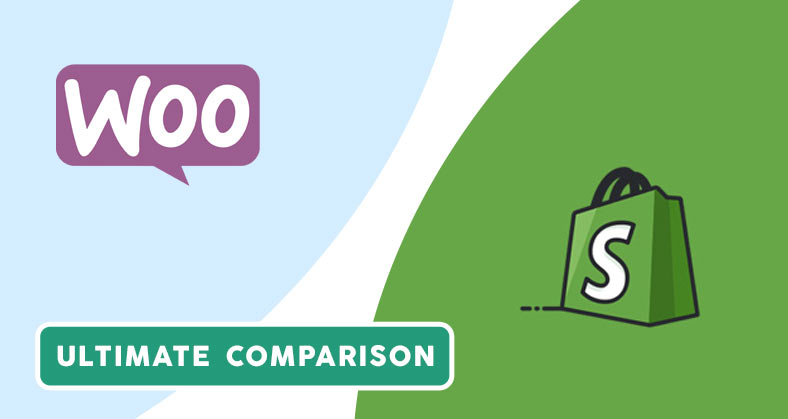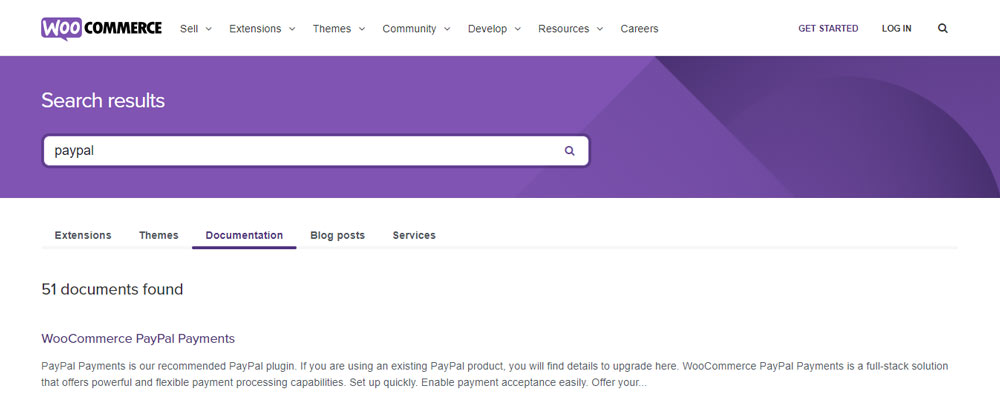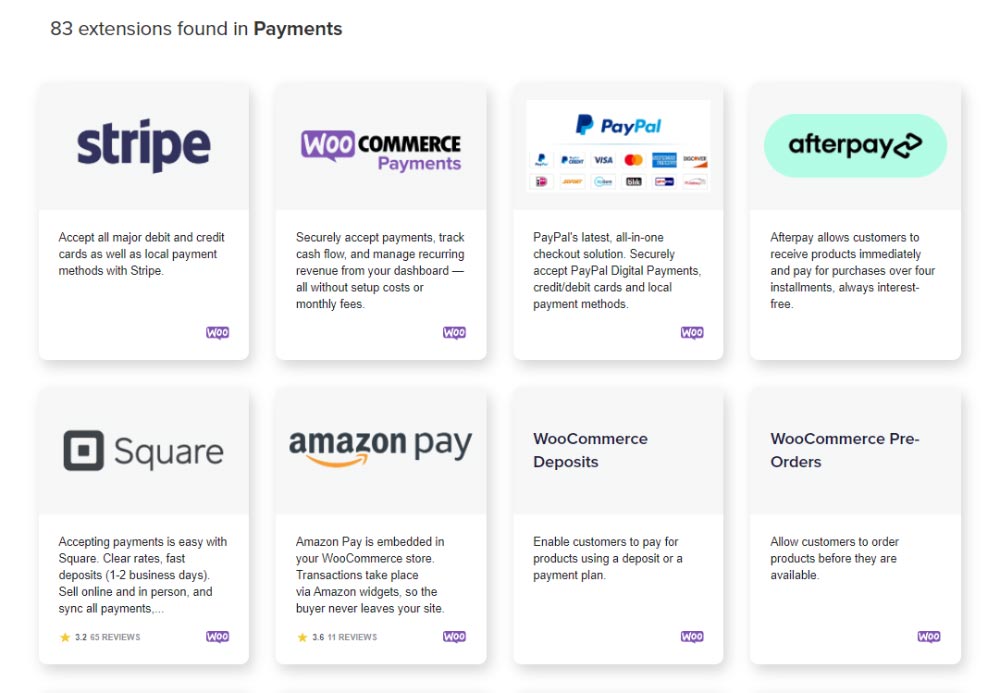Which one is better, Woocommerce for WordPress or Shopify? While almost 22% of online stores are powered by Woocommerce, Shopify does 17% of all the eCommerce stores.

The competition between both might seem neck to neck, but the truth is that both are really as good as they could be in their own place. While Shopify does wonders in some categories, Woocommerce does to others.
Many entrepreneurs claim Shopify is the web’s most popular eCommerce platform and easy to start with, is it so? We’ll see which one is beginner-friendly and easily manageable in long term. On behalf of mentioned along with other factors, let’s compare both and find out ‘WooCommerce Vs Shopify, Which One Is Better?’
WordPress
WooCommerce is the shopping plugin for WordPress, which is an open-source platform. While using Woocommerce you need to configure your own domain, Hosting, and manage all the files from yourself.
Setting up your first WordPress-powered WooCommerce shop could be comparatively hard but you get a lot to choose from, especially loads of free Themes and Plugins.
Shopify
Shopify is an eCommerce hosting platform that makes it easy for you to create an online store on the go. Shopify hosts and manages the software on your behalf making the website creation process on the go and hassle-free.
It’s never been easy managing all your eCommerce tasks like accepting payment, managing inventory, having a professional store, hosting, security without Shopify. While store management is not bothering you, Shopify charges a timely amount for their complete eCommerce solution.
This ultimate comparison article would be held on some basic comparative factors that determine the pros and cons of a proper eCommerce platform, which are:
- Themes
- Load Time
- Ease of use
- Security
- SEO Tools
- Support
- Integrations
- Pricing
1. Themes
The Design and customizability of a theme is the key to user retention. A properly designed, Decent looking, responsive theme can attract users’ attention and boost up sales to the next level.
With Woocommerce on WordPress, you get to choose from thousands of completely customizable and scalable themes. It’s even possible to get your own custom-made theme for your eCommerce platform.

On the other hand, Shopify provides more than 50-100 store designs available out of which only a handful of themes are free. Shopify’s Themes are much more polished as they were dedicated to representing eCommerce platforms & developed to sell.
2. Load Time
A website with a load time of more than 5 seconds loses half of the visitors each second. In this modern era, people don’t like to wait for an eCommerce store to show up on a fast internet connection. Website Load time depends on the server on which it’s hosted.
Though WooCommerce performs better in our overall rating for average organic traffic, Shopify leads the aspect with faster loading time.
Where WordPress requires you to invest in a reliable Hosting company, Shopify provides its own hosting, each brand will be hosted on its official server.
If you’re glancing for speed, Shopify is the one for you as it was designed mainly for eCommerce websites. On the other hand, WordPress comes with a lot of extra unnecessary features. Still, those looking for the proper and reliable Hosting platform to start off their eCommerce store via WordPress may peek into BlueHost.
3. Ease of use
With limited Technical skills, Shopify is a much-preferred option to set up an eCommerce store. No technical hassles of choosing a server or hosting, managing, and installing plugins from separate sources.
Ease of use is a crucial factor to discuss in Woocommerce vs Shopify comparison article. As not everyone is a Tech enthusiast, they need a platform that is user-friendly and easy to operate.
We have got a separate tutorial explaining How to create your own website completely from scratch with help of WordPress which might work as a handbook to start off your journey with Woocommerce.
Shopify takes care of a lot of the technical side of operating a store, leaving you unburdened from the issues and problematic tasks.
No worries related to Security, Backups, updates, and all on Shopify, whereas WordPress may give you headaches on that.
4. Security
Security is one of the top priorities of a website as well as a business represented in a form on an online store. Thus it’s a big concern to the sellers using eCommerce solutions.
Since WooCommerce runs on WordPress, most of the security falls into your own hands. It totally relies on how you manage your store’s security, either manually or by adding Security Plugins.
For further rearrangement on security purposes, you can grab your own SSL certificate & enroll yourself with a reputed hosting company that furnishes secure servers.
Shopify on the other hand, as discussed, handles all security measures on its own, their system also runs on a Level 1 PCI compliant server.
5. SEO Tools
Search Engine Optimization is the organic source of the traffic to a website without wasting any extra penny. Both of the platforms are robust and they make sure you reach the appropriate audience by appearing in front of the fitting people.
WordPress does have meta descriptions, alt tags, page elements to optimize product pages. It also provides flexibility on your hands and lets you choose any Search engine indexing plugin according to your choice. With help of any SEO plugins like All in One SEO, Yoast, RankMath, You can easily optimize your WooCommerce store and index them on google.
In the case of Shopify, there are many limitations pushing it negatively towards having an impact on Search Engine Optimization. Shopify doesn’t let you modify the URLs of some sections of your store, while URLs are also a countable characteristic in Google’s search algorithm.
Though some SEO apps for Shopify are out there which are known for their simplicity in installing and operating, Woocommerce is clearly a few steps ahead in terms of better SEO compared to Shopify.
6. Support
WordPress being an open-source platform, WooCommerce doesn’t support live chat, phone, and email to help you out from any situation.
In exchange for that WooCommerce does provide plenty of resources like WooCommerce Docs & FAQs on their website that can solve your potential queries, besides that the community of Woocommerce is really large.

Shopify, on the other hand, is renowned for providing 24/7 customer support via live chat, phone, email, and Twitter.
Besides that, you also get access to the Shopify Forum, knowledge base & Help center that covers some of the common user questions and problem solutions.

7. Integration
Shopify has different payment gateways in different nations, For India PayTM, PayU & RazorPay are some of the renounced platforms that they have integrated through their payment system.
Payment methods like UPI, Credit, Debit cards, Netbanking, Cash on Delivery, EMIs, Paypal, are some of the popular mediums that the majority of eCommerce stores are using. Shopify has taken well care about that and merged each of them via different payment platforms one way another.

Woocommerce offers Paypal & Stripe gateway by default. Features like Cash on Delivery are also available for physical goods sold by your eCommerce store.
You can install any payment gateway plugin for integration with other payment UPI platforms like PhonePe, PayTM, AmazonPay & even Crypto payment gateways are available on WooCommerce via free Plugins.

Addons or Integration isn’t always about payment gateways, it can be the seamless process of adding new features to your website.
Addon Tools: Unlike Shopify, Numerous free plugins, as well as tools, can be integrated with the WooCommerce store like: Woo Direct Checkout, WooCommerce PDF Invoices, Custom Product Tabs, Email Customizer, WooCommerce Multilingual, Checkout Field Editor, Woocommerce Compare, Order Delivery Date, Booking and Appointment for WooCommerce, etc.
Shopify also furnishes some of the mentioned tools, but most of them aren’t free. whereas WooCommerce has a variety of free alternatives to choose from.
8. Pricing
As discussed before, WordPress comes completely free as well as the eCommerce plugin WooCommerce can be installed on the go. But on that note, Hosting a WordPress site needs separate Hosting plans and maintenance costs that you need to manage on your own.
Shopify, being a completely hosted eCommerce solution, charges a recurring fee based on the plan you’ve chosen. It simply delivers all your necessities bundled in a package and you receive your shiny eCommerce store upon enrolling yourself in any of their plans.

When we sum your calculations up:
- Shopify eCommerce store starts from: $29 / month.
- WooCommerce WordPress Hosting varies from: $2-$100 / Month. Choose the best eCommerce hosting for your store, Compare Hosting Plans.
Transaction Fees: WordPress delivers complete control over your hands thus you’ll never end up paying any fees. Anytime you receive an order payment, you receive the complete authority of the revenue & you hold the right to share a certain percentage with other owners/ sellers if you wish to.
The scenario on Shopify is somewhat different, you’ll be charged 2%, 1%, and 0.5% respectively from the Basic plan to the Advanced plan. Nevertheless, if you’re using the Shopify Payment gateway, you wouldn’t end up paying any extra fee.
9. Woocommerce vs Shopify: Conclusion
Summing up everything, both WooCommerce and Shopify are worth your money, each having its ups and downs accordingly. While WooCommcere is a freely manageable platform you get a lot to customize on your own, Shopify is more like a stacked eCommerce solution where you do not need to worry about technical issues.
10. FAQs
WordPress vs Shopify who has better addons?
WooCommerce by WordPress is having a wider range of integrative applications and the majority of them are free thus Woocommerce addons can deliver better value compared to Shopify.
Can I get Shopify free for unlimited time?
You can try out Shopify for free for 14 days, after that period you’ll need to sign up for a paid plan to continue using their services.
What hosting is needed for Shopify?
Unlike WooCommerce, Shopify lets you host your eCommerce site on their server which is a hassle-free process.
Can I switch to Shopify after using WooCommerce?
Yes, you can switch between those two platforms with help of third-party plugins, switching is not recommended though it is possible.

